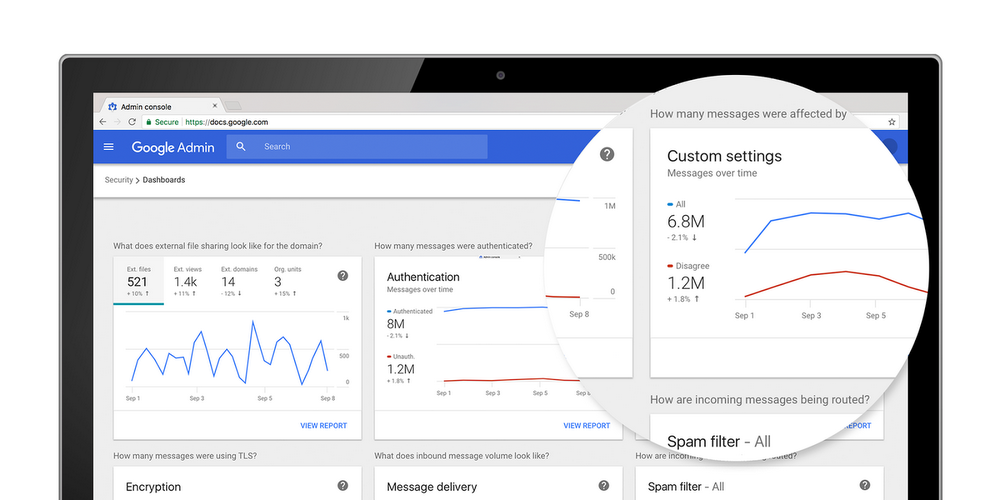Google has made significant inroads into the small business market with Google Workspace. For business owners and employees who have been using consumer Gmail, moving to Google Workspace is an easy transition.
However, Google has faced several barriers to widespread Google Workspace enterprise adoption. Here are some of those blockers and what Google has been doing to address them.
Past & Present Obstacles to Widespread Google Workspace Enterprise Adoption
Management tools that enterprise IT managers demand
Google has taken steps to address this issue through continuous improvement to the suite of products. The Google Workspace Security Center for Enterprise customers is an example. Security improvements are near and dear to CIOs.

The preeminence of the Microsoft brand in the corporate world
Brand familiarity is a strong factor in the minds of both consumer and business buyers. The Microsoft brand is seared in the minds of many IT managers who are over a certain age.
For a substantial swing of enterprise adoption toward Google to occur at the enterprise level, it may take the flow-through of the younger generation into business management positions.
This challenge is being addressed by Google’s long game. In part, the long game has involved providing free versions of Google Workspace to colleges and universities.
As Aparna Pappu, the head of Google Workspace, said at Google Cloud Next ’22, “I think about the fact that we have a generation of people who use Google Docs in school, and are entering the workforce in large numbers.”
The desktop is still alive and well in many enterprises
Google Workspace is a cloud-first solution with several desktop options, including Gmail Offline and an offline mode for Google Docs, Sheets, and Slides. Microsoft Office is a hybrid of desktop and cloud.
For many enterprises, Microsoft Office 365 aligns better with the practice of building and supporting a Windows machine for each employee.
Google has been trying to turn this tide through the promotion of Chromebook Enterprise, a solution that means centralized management of a fleet of relatively low-maintenance computers.
Enterprises That Have Adopted Google Workspace
Despite Google’s efforts, Fortune 500 companies are not yet lining up for Google Workspace. However, there are a number of early adopters.
Here are examples of large companies that have adopted Google Workspace:
- All Nippon Airways
- ATB Financial (Forbes article)
- Box
- Broadcom
- Colgate-Palmolive
- Curves
- Dow Jones
- Finish Line (Computerworld Article)
- Fossil
- Nielsen Holdings
- Salesforce
- Sanmina Corporation (Customer Story)
- Shaw Floors
- The Roche Group
- The Scotts Miracle-Gro Company
- The Weather Company
- Verizon Communications (CIO article)
- Xero
“Verizon recognized the power of cloud-based collaboration and productivity tools early. This foresight put us ahead of the curve going into the pandemic. Now, we are in the final part of our migration from our older Microsoft system to Google Workspace—we will soon have approximately 200,000 employees and contractors using these tools.”
Greg Sly, Senior Vice President of Infrastructure & Platform Services at Verizon
Google provides a detailed listing of its Google Workspace customers.
Salesforce, which competes against Microsoft in the CRM space and which has many enterprise customers, could be a valuable strategic account for Google. Salesforce and Google announced a multifaceted strategic alliance back in 2017.


